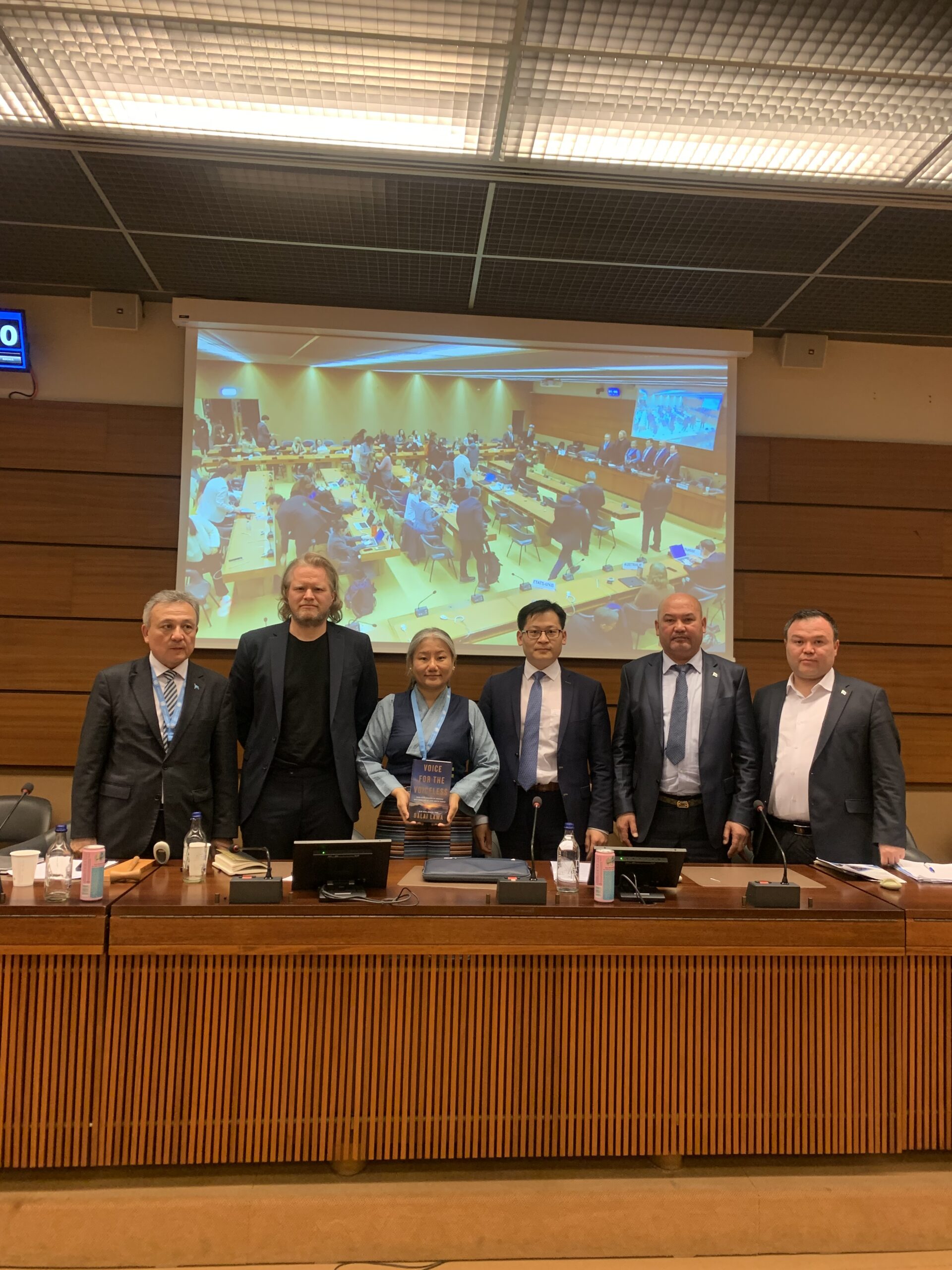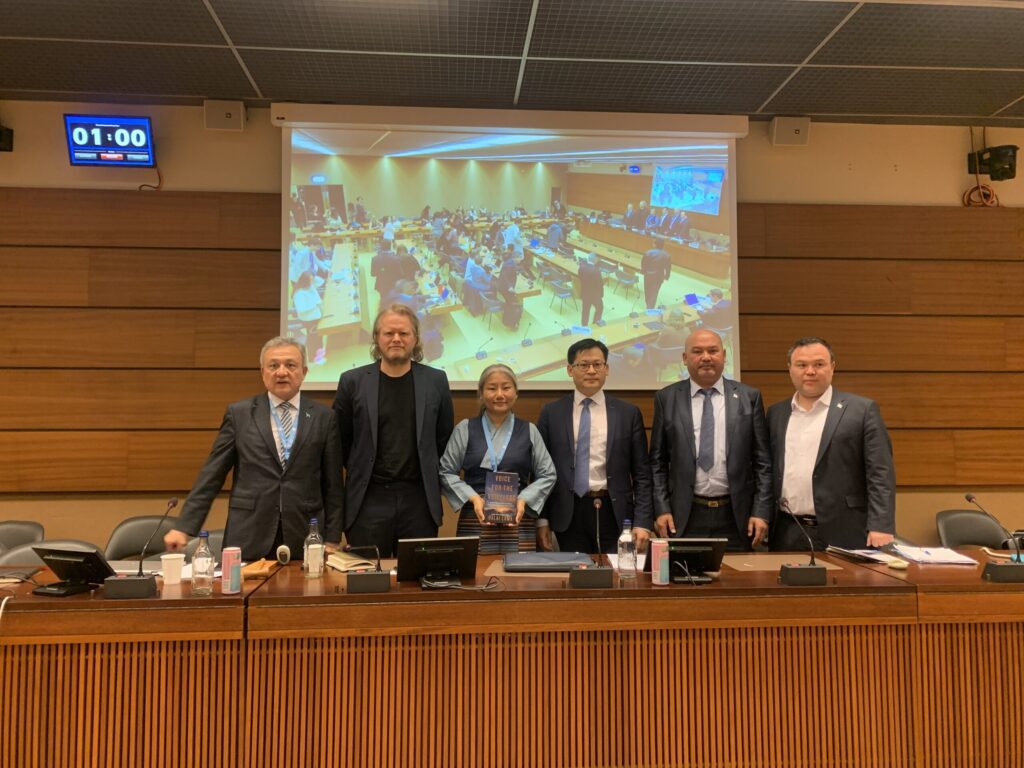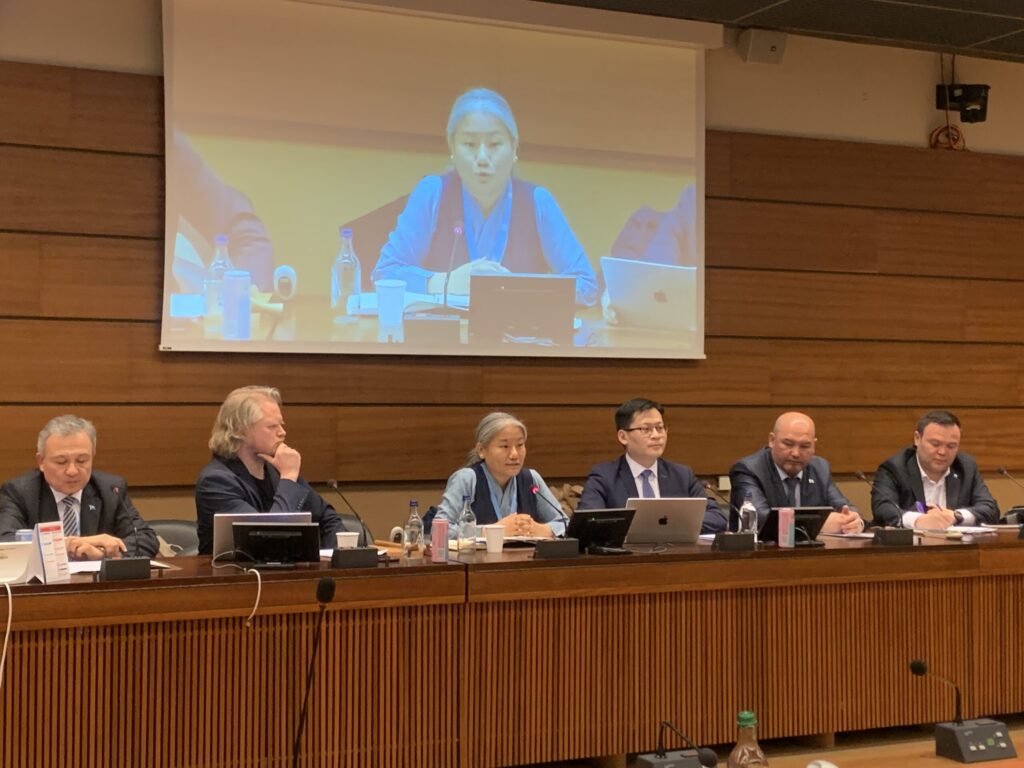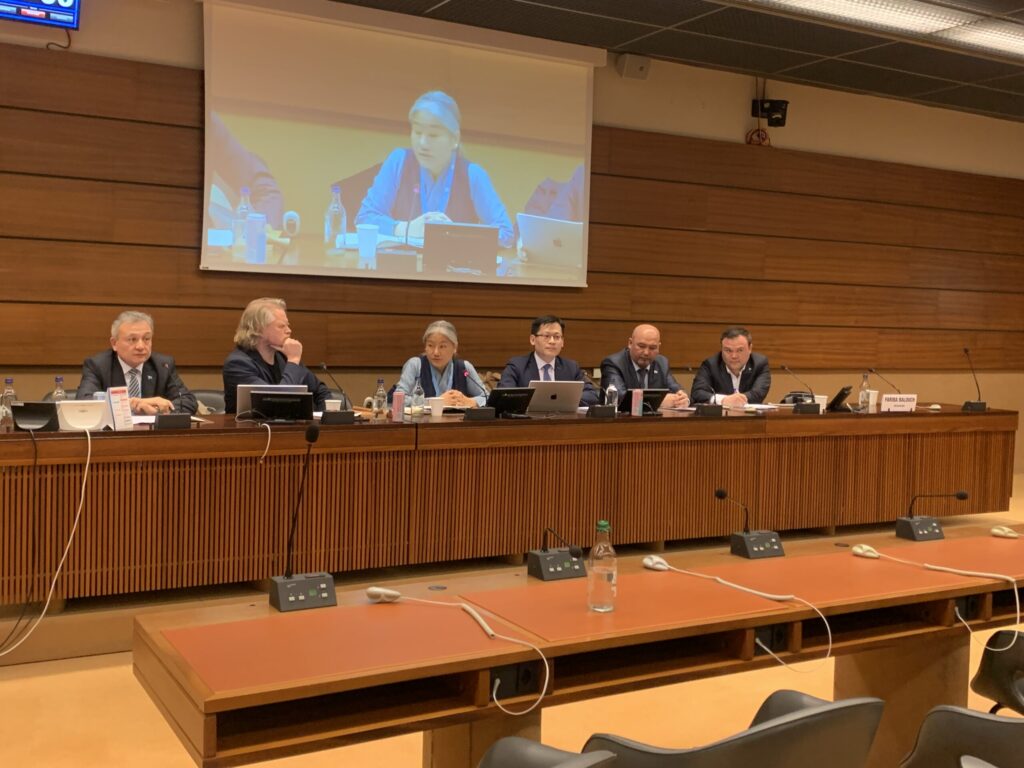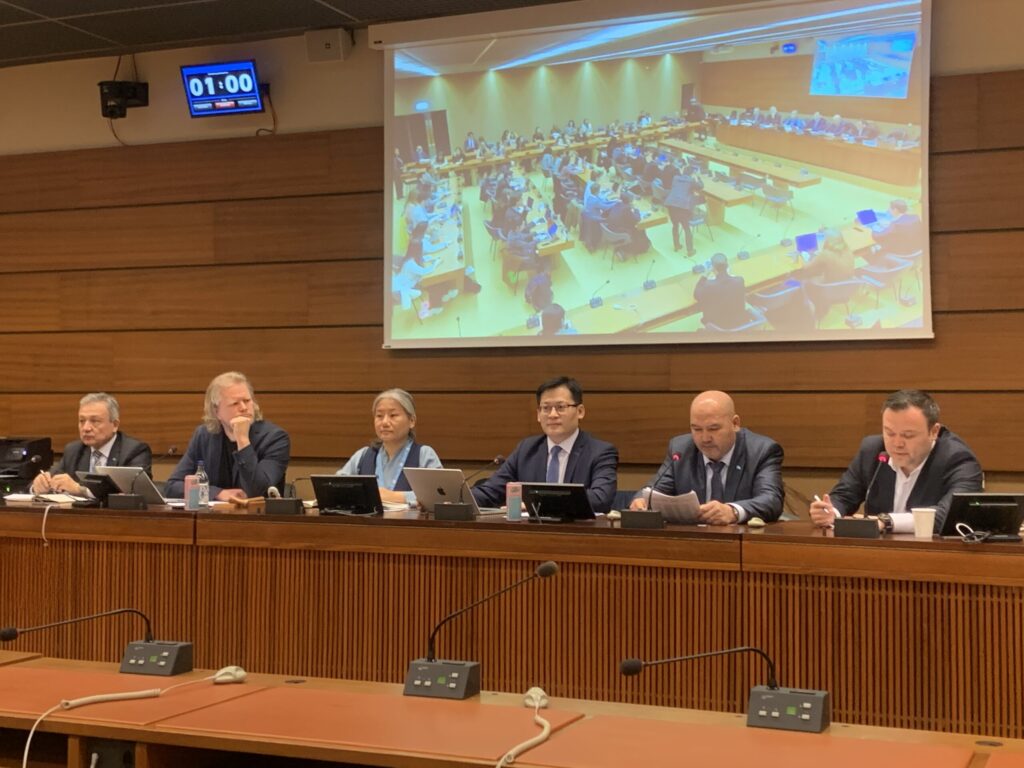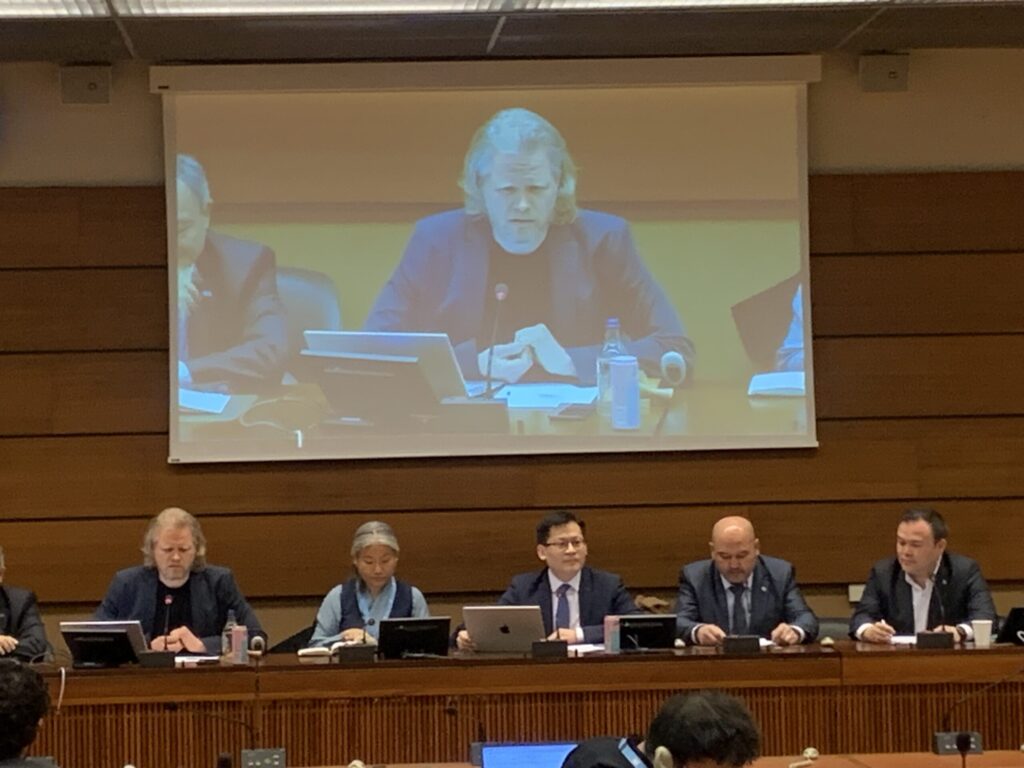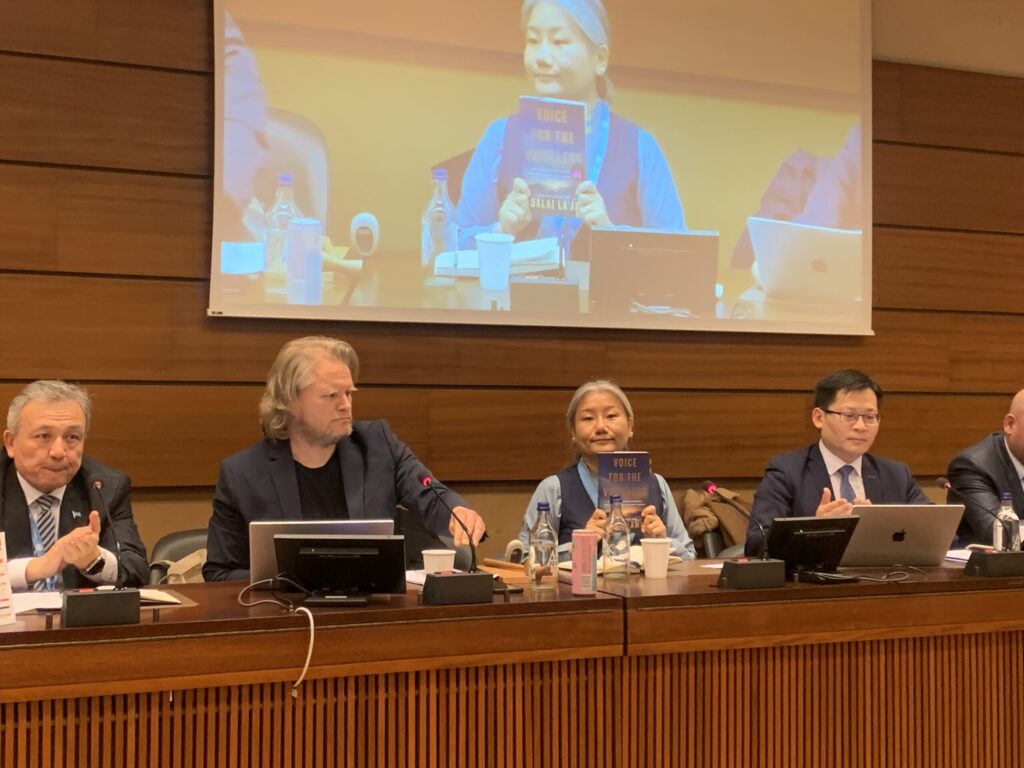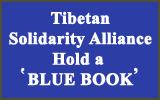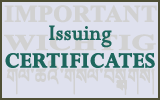Representative Thinlay Chukki Speaks at Side Event on Persecuted Communities in China During 58th UNHRC Session
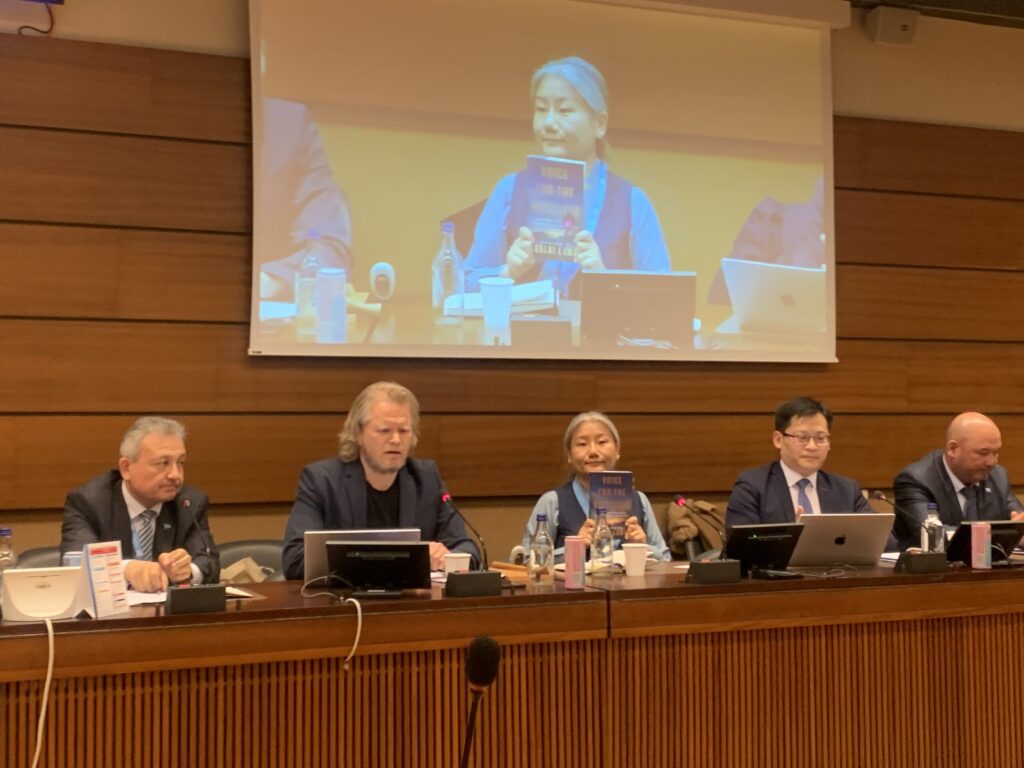
Representative Thinlay Chukki of the Tibet Bureau Geneva participated in a side event on the situation of persecuted communities in China, organised by the Society for Threatened Peoples as part of the ongoing 58th session of the United Nations Human Rights Council, to discuss the Chinese communist government’s crimes against ethnic and religious minorities on 18 March 2025.
It was also attended by human rights activists Lebin Ding, a survivor and son of imprisoned Falun Gong practitioner; Dolkun Isa, the former President of the World Uyghur Congress; and Erbakit Otarbay, an ethnic Kazakh who survived the reeducation camps in East Turkestan (so called Xinjiang), along with representatives from the Chinese Christian Community as well as from 13 participating countries. Puntsok Topgyal, the UN Advocacy Officer, and Sangye Kyab, Chinese Liason Officer, from the Tibet Bureau Geneva also partook in the event.
Beginning with the emotional moment when she had the opportunity during the 66th commemoration of the Tibetan National Uprising Day in Dharamshala to hear His Holiness the Dalai Lama recount crossing the Kyi Chu River in Lhasa at the start of His exile in 1959, and how he looked back at Lhasa, praying for the Tibetan people, Representative Thinley Chukki spoke to the gathering on three major issues concerning Tibet and Tibetans.
Focusing on the protection of Tibetan identity, culture, and education, the Representative emphasised that safeguarding Tibet’s unique identity is a vital concern, as there is a real risk that it may not survive. Tibetan children in Tibet are forcibly separated from their families and placed in boarding schools, where Chinese is the primary language, and Tibetan language, culture, and traditions are eroding day by day.
The second issue highlighted was the suppression of religious freedom. Representative Thinlay Chukki expressed grave concern over the Chinese government’s ongoing repression of religious freedoms in Tibet, including the prohibition of displaying His Holiness the Dalai Lama’s portraits in Tibetan homes. She also reminded the audience that it has been 30 years since the disappearance of the 11th Panchen Lama. Despite continuous calls from the international community for clarification about his whereabouts, the Chinese government has yet to provide any clear answers.
The third issue addressed was environmental protection and social welfare. Representative Thinlay Chukki voiced deep concern about the Chinese government’s construction of large-scale reservoirs in Tibet. In the process, Tibetan nomads, farmers, and a significant number of monks and nuns are being forcibly displaced without any consultation with local communities. These Chinese projects are not only altering Tibet’s natural landscape but also pose a serious threat to the survival of Tibetan cultural traditions and way of life.
To provide further details on the PRC’s suppression of religious freedom in Tibet, Representative Thinley Chukki quoted from His Holiness the Dalai Lama’s recently published Voice for the Voiceless:
“On the religious front, there is a new policy of direct control by the Party over monasteries and nunneries, imposing intensified surveillance and control over monastic communities. I am told that today, many monasteries have police stations within their compounds. Tibetan monasteries are also being forced to have Communist Chinese officials within the administration of the monasteries’ management. This tightening of control over the Tibetan people’s religious life, especially in monasteries, began in 2017 with a specific policy adopted by China’s State Council Regulation on Religious Affairs. In brief, various new regulations are being introduced, all aimed at what the Chinese authorities call promoting “Tibetan Buddhism with Chinese characteristics.” One of these new regulations mandates that the monastic curriculum must include courses on politics, laws, regulations, policies, Chinese language, and the history of the relationship between Tibet and the “motherland.” As for the general Tibetan populace, I am informed that in Lhasa and elsewhere, there has been a significant increase in pervasive surveillance of everyday life and internet use. Community leaders, environmental campaigners, philanthropists, and social activists are especially targeted”
She further quoted, “To Chinese brothers and sisters: I appeal to you to open your hearts to the ongoing plight of the people of Tibet. The Chinese and Tibetan peoples share a common spiritual heritage in Mahayana Buddhism, and cherish compassion for all suffering beings. I assure you that through the long history of my struggle on behalf of the Tibetan people, I have never harbored enmity against the people of China. I have always urged Tibetans not to give in to hatred due to the injustices inflicted by a cruel government in the name of the Chinese people. I ask you to be vigilant against any attempts to promote racial hatred against the Tibetans, through state
propaganda aimed at splitting the long history of good feeling, neighbourliness, and friendship between our peoples. I appeal to you to make efforts to understand that the Tibetan struggle for freedom is not only just; it is also not anti-Chinese. Help us find a peaceful, lasting solution to the issue of Tibet through dialogue in the spirit of understanding and accommodation. Over the years, many Chinese scholars and intellectuals have spoken out. I believe many Chinese who know the truth about Tibet, its culture, and its people will come out when they are able to express their true feelings without fear of reprisals. Protecting Tibet is a matter important also to the very heart of China itself. I want to share with you that for me, like for so many across the world, one sad thing is that the amazing economic liberalization of China was not matched with progress in respect for human rights and democratic freedom for your people.”
